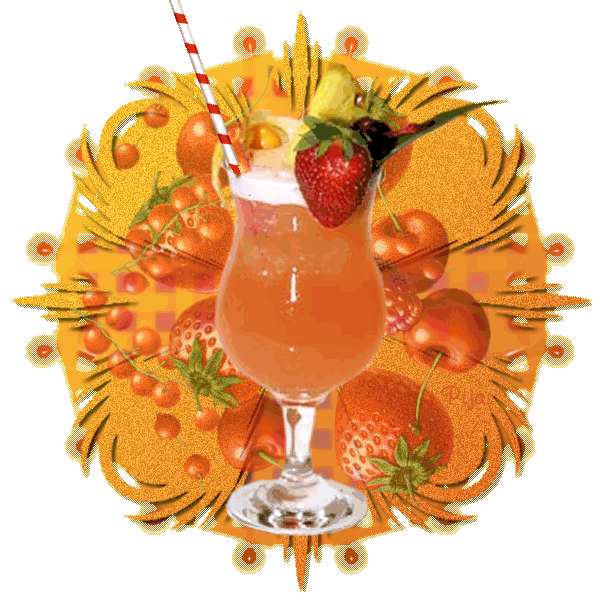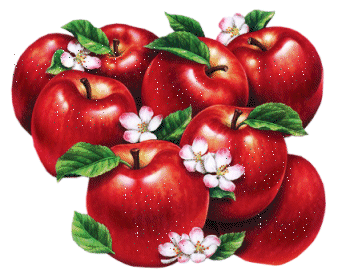Is a cooked breakfast always unhealthy?
There are lots of myths and old wives' tales about food.
Check out the following popular beliefs and challenge your assumptions.
The experts are always changing their minds about what healthy eating really is
False - It might seem as though nutrition experts regularly change their minds and don't agree with each other. But, in fact, the main messages about healthy eating have stayed the same for some time.
For example, the message to reduce the amount of fat we eat has been the same for more than 15 years, and we were being told about the importance of fruit and veg as long ago as the Second World War. Then the advice was to 'dig for victory' and grow our own.
When we do hear contradictory messages about healthy eating, this is often because new scientific findings tend to be reported in the media before they have been fully researched, and without the findings being put into context
False - It's true that we shouldn't eat too much of certain foods, or eat them too often, such as those high in fat or sugar, but there are lots of interesting foods we should be eating more of, such as oily fish and fruit and veg.
And eating healthily doesn't mean cutting out all your favourite foods, it's just about getting the balance right.
If you add a bit of variety by changing what you usually eat, you'll also get lots of opportunity to experiment. Remember, healthy eating can be tasty, exciting and exotic.
False - Although it's true that some healthier ingredients can be more expensive, often you only need to use them in very small amounts. And sometimes choosing the healthier alternative can actually save you money.
You can make meat go further by cooking it in casseroles or stir-fries with cheaper ingredients such as beans, pulses or seasonal veg. Basing your meals on starchy foods such as rice, pasta or bread is not only a good idea for a healthy balanced diet, but these foods are also good value and can make a meal go further.
A good way to save money is to cook batches of dishes such as chilli, curry or stew, and freeze them in handy portion sizes. When you cook a batch or save leftovers, it's important to cool the food quickly (in one to two hours), then freeze it in sealed containers. And always make sure you reheat food until it's steaming hot all the way through.
True - If you grill lean bacon, poach the eggs and include baked beans, grilled tomatoes and mushrooms cooked without fat, and serve it all up with thick crusty bread, you'll have yourself a delicious cooked breakfast that is also healthy and balanced.
False - To claim that a product is 'reduced fat' the amount of fat must be at least 30% lower than standard products. But these types of foods tend to be high in fat and energy in the first place, so the 'reduced fat' version can still have quite high amounts of both.
Foods labelled 'low fat' or 'reduced fat' aren't necessarily low in energy. The fat is replaced by other ingredients, so the product can end up with the same or an even higher energy (calorie) content.
Also, if you're tempted to use more of a reduced-fat product than you would of the full-fat version, you might end up having the same, or even more, fat and energy.
False - Some vegetarian dishes contain a lot of fat, especially if they're made with lots of cheese, oil, pastry or creamy sauces, or if they've been fried. So they aren't necessarily a healthy option.
In fact, red meat can be low in fat if it's lean and all the visible fat has been removed. Other low-fat options are chicken without the skin, and fish, if they've been cooked without too much fat.
But it's always a good idea to have some vegetables with your meal because we should be eating at least five portions of a variety of fruit and vegetables a day as part of a healthy balanced diet.
False - Vegetable suet is suitable for vegetarians but it's just as high in fat as beef suet, and contains as much saturated fat. The same is true for cheese.
Vegetarian cheese is suitable for vegetarians because it doesn't use animal-based rennet (it's still made from milk) but this doesn't affect its fat content.
False - Butter and margarine contain different types of fat, but both contain a similar amount of fat. So whichever one you choose, remember to use it sparingly.
False - Removing visible fat can make a big difference to the fat content of meat. In fact, lean red meat is quite low in fat at 4-8g per 100g.
When the lean and fat components of meat are blended together in mince or meat products, this can make the fat content much higher. Meat products, whether they've been made from red meat or poultry, can also be high in fat because of the other high fat ingredients they contain, such as the pastry in a meat pie or pasty.
Skinned poultry meat only contains about 1-3g fat per 100g, and white meat contains less fat than darker meat. But if the skin and fatty deposits beneath it aren't removed, the fat content will be much higher.
So try to go for leaner cuts, always remove the visible fat, and remove the skin from poultry
Sweets are a good source of vitamins
False - Sweets contain high amounts of sugar and are not a good source of vitamins and minerals. Eating sweets regularly between meals will lead to tooth decay. For snacks that are rich in vitamins and minerals, eat a variety of fruit (fresh or dried) instead.
False - Drinking water that is ice cold doesn't use up any more calories than drinking water at room temperature. If you do want to lose weight, it's important not to go on a 'crash diet'. Losing weight takes time.
The most effective way to lose weight - and keep it off - is by changing your lifestyle for good. You need to eat a healthy balanced diet, which means eating plenty of fruit and vegetables, basing your meals on starchy foods, cutting down on foods high in sugar or fat, and by being more physically active.
False - It's better to show children a new food a few times before you give it to them to try. Offer new food to children as often as possible. If they refuse the food, wait a few days then try again. Fruit and vegetables (fresh, frozen, canned, dried or a daily glass of juice) are an important part of a healthy balanced diet for both children and adults.
If a child seems reluctant to eat certain fruit and vegetables, try different types instead, or mix them with foods they already like such as yoghurt, rice or mashed potato. You could also encourage children to help prepare new foods - research suggests they will be more likely to try them. Try not to get into confrontations about food because this will make matters worse. Instead, try to offer your child a variety of foods.
False - As part of a healthy balanced diet we are recommended to eat at least five portions of a variety of fruit and veg each day, whether they are fresh, frozen, canned, dried or juiced (but fruit juice only counts as a maximum of one portion a day). Dried fruit such as currants, sultanas, raisins, dates and figs provide energy in the form of sugar and are a good source of fibre. They also contain other vitamins and minerals, but not vitamin C, which is found in fresh fruit. A portion of dried fruit is one heaped tablespoon. This is less than a portion of fresh fruit because it's based on the equivalent weight of fresh fruit.
False - Breakfast is a very important meal. When we're sleeping, we are also 'fasting' for an average of about eight hours, so it's essential to 'break' this fast. Although people who skip breakfast catch up on their energy requirements later in the day, they're unlikely to get all the vitamins and minerals that a simple breakfast can provide. And, if we've missed breakfast, this tends to make us snack by mid-morning on foods that are high in sugar or fat.
False - Lemon juice, although a good source of vitamin C, won't dissolve the fat in fatty foods. The best way to get rid of the fat on meat is to cut it off or choose leaner cuts.
False - Avocados contain monounsaturated fat, which has a positive effect on blood cholesterol levels. As part of a healthy diet it's important to reduce the amount of saturated fat we eat and replace it with unsaturated fat, as well as reducing the total amount of fat we eat. This means avocados are a healthy choice. Half an avocado also counts as one of the five portions of a variety of fruit and vegetables we should be eating each day. However, avocados do contain fat and eating too much of any food containing fat can lead to weight gain if the energy isn't used up through physical activity.
False - 75% of the salt in our diet comes from processed foods. Just 10 to 15% comes from the salt we add when we're cooking or at the table.
On average we're eating about 8.6g of salt a day. But we should try to cut this down to no more than 6g of salt a day for adults.
True - The sugars found naturally in whole fruit are less likely to cause tooth decay because the sugar is contained within the structure of the fruit. But, when fruit is juiced or blended, the sugar is released. Once released, these sugars can damage teeth, especially if fruit juice is drunk frequently.
But fruit juice is still a healthy choice. One glass (150ml) counts as one of the five fruit and veg portions we should all be aiming for each day.
To help keep teeth healthy, it's best to have fruit juice at mealtimes, particularly for children. Milk or water are good choices for children to drink between meals.









